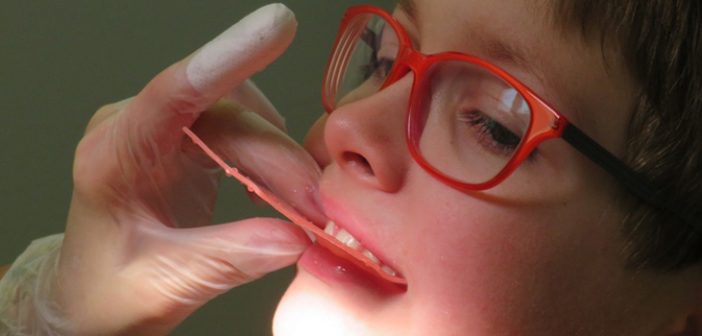Did you heave a big sigh of relief now that flu season is over? Don’t celebrate too soon. As veteran parents will tell you, if there’s anything catching in the air, children are the most susceptible. Children have little experience to help guide their choices, so their health falls on the shoulders of parents to maintain.
Knowing the common health concerns children face can help parents prevent them from occurring in the first place. Or at least, aid parents in acting fast at the first signs of illness, which will speed up the recovery process.
Here’s what to keep a sharp eye out for.
Cavities.
Yes, even kids get them. Like with adult cavities, when they appear, they hurt and cause a mouthful of misery. Why do cavities form in very young children? It could be they aren’t brushing between their teeth enough. When that happens, plaque gathers and harbors bacteria that lead to cavities.
There are many preventative measures you can take. First, help your kid establish better teeth brushing habits by making teeth brushing time a fun ritual. Second, regularly visit the dentist for cleanings so that their first experience at the dentist is not a painful one.
Celebrity Dental (https://www.celebritydental.com) says, “Because healthy teeth maintenance starts as soon as teeth erupt, it’s important to educate young patients and parents on the importance of oral hygiene and the dangers of cavities.”
Make their first experience in a dental office one that will set them up to have good associations, not painful ones.
The common cold.
Tired of catching all the colds that your child brings home with them from classmates and school? Contrary to popular opinion, you do not need to resign yourself to regular coughs and sniffles in your house. There are effective measures you can take that will cut down the rate of colds by at least 50 percent. The primary way colds get passed around is through germs passed around on one’s hands.
A sick kid coughs into their hand and then touches a doorknob at school. Your kid then touches the same doorknob and forgets to wash his hands before tucking into lunch. Handwashing is one of the most essential ways that will prevent the spread of germs. Establish firm handwashing routines and rituals at home. Your child will then take the handwashing habit with him to school.
Earaches.
When a child complains of an earache, parents often feel helpless in how to reduce the pain. Earaches are often caused by ear infections that lead to an infected upper respiratory tract. When that happens, the Eustachian tube swells, putting pressure on the eardrum. This pressure in the ear leads to fluids collecting, which then can lead to a middle ear infection.
If your child is very young, they may be unable to communicate the source of their pain. Always see a doctor when in doubt. Most ear infections will clear up after a couple of days. In the meantime, helpful measures include the following.
- Have them lie down with their head propped up on a pillow. This elevated position will reduce some of the pressure in the ear.
- Give her some nose drops to aid in decongestion, which will ease breathing and eating.
- Acetaminophen or ibuprofen can lessen ear pain. Give them the children’s dosage amount.
- Use a warm compress for 20 minutes on your child’s ear. Many parents claim this as an effective treatment for ear pain.
In some cases, home treatments will not suffice, and a doctor should be consulted immediately. If you see blood running out of the ear, immediately take your child to a hospital. Additionally, if your child has swollen or red skin around the ear area. Or if they have a stiff neck that accompanies the earache.
Pinkeye.
The official name is conjunctivitis. Possible causes include bacterial infection from the same source as colds. The infection can at times be caused by bacteria from chlamydia and gonorrhea. But with infection-caused pinkeye, it can largely be prevented through the careful washing of hands. And avoiding contact with individuals who have pinkeye.
There are some forms of pinkeye that are not infectious and occurs because of an allergic reaction to something in the air.
Typically, pinkeye will clear up without any treatment. Some doctors prescribe antibiotic eye drops for bacteria related pinkeye. And anti-allergy prescriptions for allergy-related pinkeye.
For bacteria-caused pinkeye, the best way to avoid it is to again firmly establish handwashing in your home. As well as to caution children from rubbing their eyes with dirty hands.




